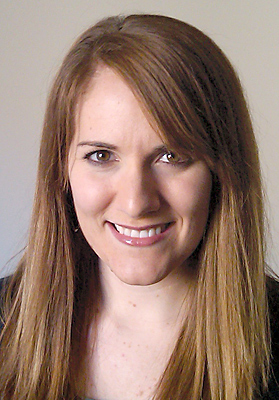
“Hurt people say hurtful things”— One of the maxims being tossed around in response to the problem that is bullying.
It’s not a new problem. Didn’t we all get teased in school for wearing turquoise leggings, a yellow top and a red polka-dotted head band? Oh, you didn’t? I’m going to have to talk to my mother about that.
The idea of bullying isn’t new, but the abundance of new ways it can begin and quickly spread through texting and Facebook is alarming. I wish I knew how to stop it. I don’t. In fact, in the workshops I’ve attended and articles I’ve read, it seems that kids saying hurtful things is a widespread and overwhelming problem. No one has an instant solution.
However, team Catholic does have a secret, under-utilized weapon to offer our youth when it comes to bullying: love and forgiveness in the sacrament of reconciliation.
Confession offers us a chance to hear Christ tell us, through His minister, that our sins are forgiven. I know what you’re thinking, “Do you not get how bullying works? Little Susie doesn’t need confession. It’s Billy, who shoved her cookies in the sand box, who needs to get right with God.”
It may seem a little skewed to suggest that the victim of bullying should go to confession, but two effects of the sacrament can offer tremendous help to everyone. Plus, we all sin and ultimately, we’re responsible for our own souls. We can’t fix everyone, we need to start with ourselves and our families.
The gossip, name-calling and even physical assaults that bullying consist of are all lies about the dignity of the victim. I’m no psychologist, but I know that when I’ve been called names part of the pain is wondering if maybe I am fat, stupid and as unlovable as this person is making me feel.
The sacrament of reconciliation, among other things, “imparts to the sinner the love of God who reconciles” (Catechism of the Catholic Church, #1442). Forgiveness is one of the greatest expressions of love. To hear we are forgiven by the one who created us is an affirmation of our worth — regardless of what we may have overheard or read on Facebook. It instills, in our souls, the love of God.
When we experience forgiveness, we are then able to forgive. I am in no way saying that bullying, name-calling, gossip or exclusivity are OK and we should teach kids to just deal with it. However, we have to teach youth to forgive.
As adults, we know that carrying grudges and anger will destroy us. The catechism explains that when Christ taught us to “forgive us our trespasses,” it links “our forgiveness of one anther’s offenses to the forgiveness of our sins that God will grant us.”
The more we experience God’s forgiveness, the more grace we receive to do what we simply cannot do on our own — forgive those who have hurt us.
There’s no quick fix to bullying, but knowledge of God’s love and forgiveness in our lives can bring healing and restoration and hopefully start to break the cycle so that fewer are hurt.
Alison Griswold is the youth director at St. Francis by the Sea Church on Hilton Head Island. She writes “Team Catholic” for The Miscellany.
